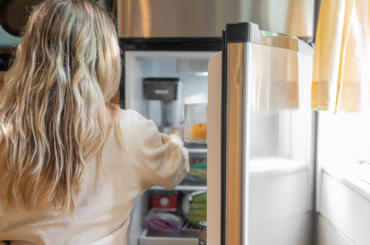Did you know that the way you talk about secrets can help keep your child safe?
Unfortunately, families need to be aware that predators, abusers, and bullies often tell their victims to keep something secret, and to never tell anyone about what happened.
Of course there are silly secrets too — which kids of all ages may like to have fun with. However, if you make an effort to call these “surprises” instead of “secrets,” it can help kids understand that secrets are something more serious that they should tell an adult about.
And what about when people do have a harmless but legitimate desire to keep certain information private? All of this nuance can be confusing for kids!
So, get familiar with the distinction between secrets, surprises, and privacy yourself — and try to not to overuse the word “secret” when something is actually a fun surprise or a simple need for privacy.
The below script can help you find the words to explain the differences between surprises, secrets, and privacy to kids.
Here are some additional tips for reinforcing these messages in everyday life with kids:
- You can also teach kids about privacy by having them learn (eventually) to shower/bathe by themselves, and knock before opening a closed door.
- You can model consent and safe touch by explaining what a doctor needs to do before it happens, and playing a tickling/wrestling game where you ask for permission and stop as soon as someone says stop.
- And of course, you can involve them in fun surprises like wrapping birthday presents for family members to help them hone their restraint, delayed gratification, and social skills!
Surprises are fun and temporary
“A surprise is something fun or happy that you don’t want to tell right away — but you are excited to reveal soon!
For example, you don’t usually tell a friend or family member what their birthday present is going to be. You keep it quiet or hidden — to make it more exciting when they open it and find out what it is!
What are some other examples of surprises?
How does it make you feel when you are helping keep a surprise quiet or hidden until the right time?”
Secrets can be unsafe — tell an adult
“A secret is when someone never wants others to find out about something. This can hurt people’s feelings, and also prevent people from getting the help that they need.
If someone ever does something that makes you feel bad, scared, unsafe, or uncomfortable — you DON’T have to keep it a secret, even if they ask you to, and even if the person who did or said it is an adult! You should tell me or another trusted adult right away so that we can help.
For example, if a friend tells you that an older kid was hurting them, and they ask you not to tell anyone else about it… Do you think you should tell an adult? What could happen if you don’t tell an adult?
What are some other examples of secrets that could be unsafe? How would they make you feel? Who are some trusted adults you could tell?
If someone ever tells you to keep something secret, always ask yourself: Why don’t they want others to know?
Know that the choice to tell is always up to YOU, not them. And if you tell me about something, I’m always here to help you — not get you in trouble.”
Privacy is for safety and respect
“Privacy is a little different from secrets and surprises. People need privacy for their own body — like when going to the bathroom.
And sometimes people want privacy when they’re talking about something personal or important.
For example, if a friend tells you they have to get surgery, it’s respectful to NOT tell your whole class about it, because that’s private information. That’s different from a secret, because they’re already getting the help they need from their parents and doctor.
What’s another example of something you might want privacy for? Who could you ask for help if you were having a problem related to that?”







